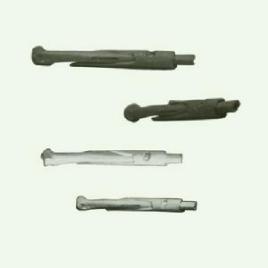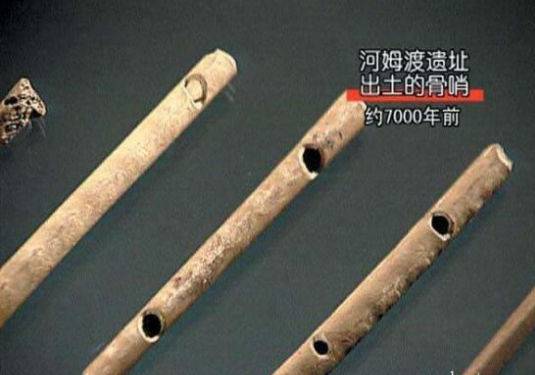Bone whistle unearthed in Hemudu
Bone whistle is made of a piece of bird's bone tube, with a hole on one side, and some bone tube has a movable limb bone inserted into it to adjust the tone. A large number of wild animal remains were unearthed from the Hemudu site, most of which are deer animals, with more than 400 antlers alone. It can be seen that people at that time mainly hunted deer. The Hemudu clan is rich in deer, which has a lot to do with the use of bone whistle. Hunters use bone whistle to simulate the chirping of animals, especially deer, to lure deer of the opposite sex to hunt.

These bone whistles were unearthed at the Hemudu Cultural Site in Yuyao City, Zhejiang Province. The Hemudu cultural site also unearthed a large number of wild animal remains, most of which are deer animals, with more than 400 antlers alone. It can be seen that the main objects of people hunting at that time were deer. The excavation of the bone whistle at least proves one side of the reason why the Hemudu clan captured so many deer, that is, the use of the bone whistle. This also proves that the original origin of musical instruments came from productive labor.

Bone whistle are all made from a piece of poultry bone tube, and some bone tube has a movable limb bone inserted into it, which can be used to adjust the tone.
The first musical instruments of human beings are relatively simple in shape and mainly practical. People in the Neolithic Age have been able to carry out production activities very actively. On some bone whistles, there are traces of grinding, especially the dark one, which is particularly obvious. It can be seen that people at that time have realized that when conditions permit, try to polish the bone canal as smooth as possible, which is also one of the origins of primitive aesthetics.
 渝公网安备 50010702504639号
渝公网安备 50010702504639号